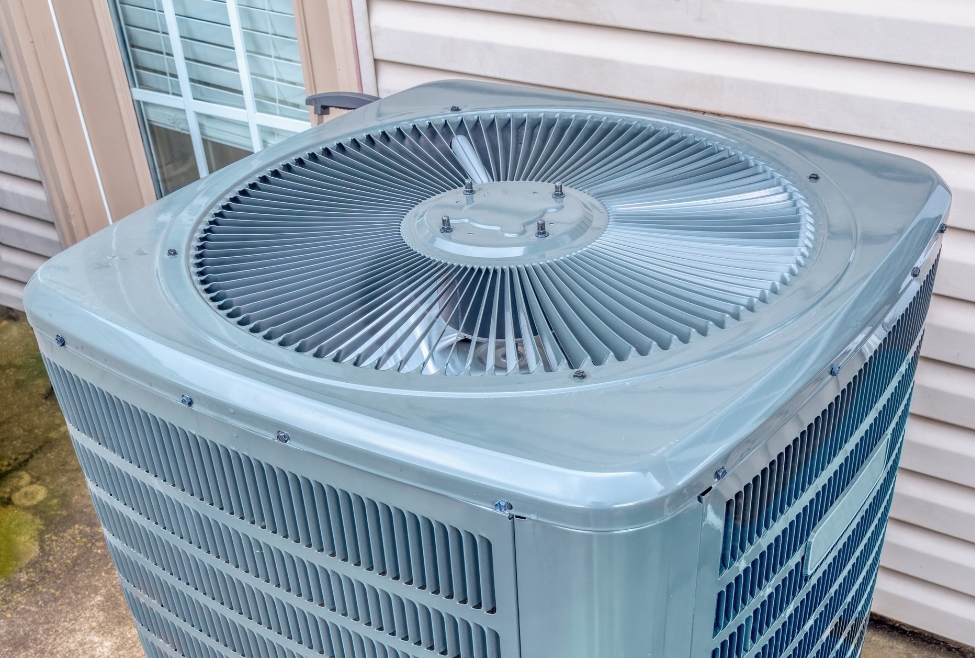
Prevent Damage & Protect Your Home
Refrigerant leaks can compromise AC performance, endanger indoor air quality, and lead to costly repairs. In regions like New Bedford, Taunton, Fairhaven, Dartmouth, Westport, and Fall River, customers frequently ask: “What happens if you have a refrigerant leak?” Let’s uncover why detecting and addressing a leak quickly is crucial.
1. Reduced Cooling Efficiency
When your AC has a refrigerant leak, it can’t absorb heat efficiently. This leads to longer run times, more frequent cycling, and poor temperature control—even when the thermostat is set properly.
2. Rising Energy Bills
Low refrigerant levels force your air conditioner to work harder to cool your home. As a result, you’ll likely see a noticeable spike in your monthly energy costs.
3. Potential Compressor Damage
The compressor depends on refrigerant to stay properly lubricated. When levels drop, friction increases and the compressor is at greater risk of overheating or failing entirely—leading to expensive repairs or replacement.
4. Indoor Air Quality Concerns
Leaked refrigerant can turn into a vapor that circulates through your home’s air. Inhaling these fumes may cause headaches, dizziness, or irritation, especially for those with respiratory conditions.
5. Environmental Harm
Refrigerants like R-410A are potent greenhouse gases. A leak doesn’t just affect your AC—it releases harmful substances into the atmosphere, making professional repair a responsible choice for your comfort and the environment.
6. Safety Risks
If a refrigerant leak occurs alongside an electrical issue, it could increase the risk of a fire hazard. That’s why timely detection and repair are crucial to maintaining the safety of your HVAC system.
Prevent Leaks and Ensure Safety
- Schedule annual refrigerant inspections with a certified HVAC technician, especially in Somerset, Raynham, and Acushnet.
- Stay alert to warning signs: warm air from vents, ice on AC lines, unusual hissing noises, or higher energy bills.
- Act promptly—delaying service can triple repair costs.
Ready for an HVAC Tune-Up?
Ensure your system is leak-free and energy-efficient with our comprehensive maintenance. We service homes in Seekonk, Swansea, Dighton, Rehoboth, Assonet, East Freetown, and surrounding areas. Reach out today to schedule your inspection!
FAQs
Can I stay in my house with a refrigerant leak?
If the refrigerant leak is small and in a well-ventilated area, it may not pose an immediate health threat. However, prolonged exposure to refrigerant gases like R-410A can cause dizziness, headaches, nausea, or difficulty breathing. If you notice a chemical smell near your vents or feel unwell when your air conditioner is running, it’s best to shut off the system and have a professional inspect it. Even small leaks can impact indoor air quality and HVAC efficiency.
How do you fix a refrigerant leak?
Fixing a refrigerant leak starts with a full system inspection and leak detection using specialized tools like UV dye or electronic sniffers. Once the leak is found—typically in coils, lines, or fittings—a technician will repair or replace the damaged component, then vacuum the system and recharge it with the correct type and amount of refrigerant. Proper repair ensures safe, efficient AC operation and helps prevent recurring leaks.
How expensive is it to fix a refrigerant leak?
The cost to fix a refrigerant leak varies depending on the leak’s location, severity, and whether your HVAC system uses older refrigerants like R-22 (which are being phased out). Minor leaks in accessible areas may cost a few hundred dollars, while major leaks in hard-to-reach components—like evaporator or condenser coils—can cost $1,000 or more. Catching the issue early can prevent more expensive compressor damage or full system replacement.
Can I run my AC with a refrigerant leak?
Running your air conditioner with a refrigerant leak is not recommended. Low refrigerant levels force your system to work harder, reducing energy efficiency and cooling performance. It also risks overheating and damaging the compressor, which is one of the most expensive AC components to replace. Even if your AC still runs, it won’t cool your home properly and may worsen the leak over time.
Can you seal a refrigerant leak?
Yes, small refrigerant leaks can sometimes be sealed using an approved HVAC leak sealant, especially if they’re located in minor joints or pinholes. However, this is often considered a temporary fix. For a long-term solution, it’s best to replace the damaged part and properly recharge the system. A licensed HVAC technician can recommend the most effective and safe repair method for your unit.
Need help with a refrigerant leak? Schedule your professional inspection and repair with Family Heating and Cooling today to protect your system, your comfort, and your health.






